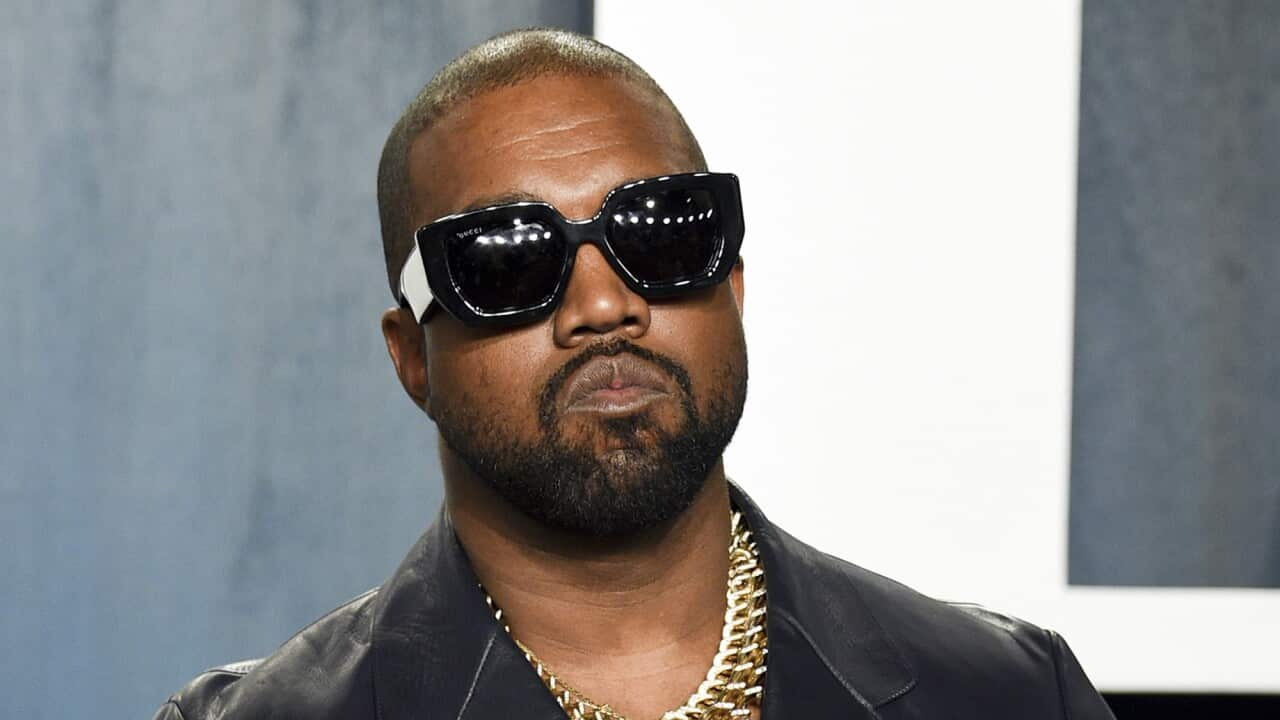

5 min read
Profile
John Safran spent months trying to find Kanye. He wound up squatting in his mansion
When Kanye West made antisemitic remarks, John Safran decided to track the controversial rapper down. His quest became the inspiration for his new book Squat and a personal search to understand his Jewish identity.
Published
By Julia Abbondanza
Source: SBS News
Image: Australian documentarian John Safran is known for his controversial stunts aimed at generating discussion around religion and cultural identity. (SBS News / Ben King)
John Safran never imagined his latest writer's retreat would involve crawling through fences to squat in Kanye West's abandoned schoolhouse.
However, for the 52-year-old author and documentarian, this seems very on-brand.
Accompanied by his partner Antoinette, Safran describes infiltrating West's abandoned Donda academy — an unaccredited Christian private school set up by the rapper — only to find himself surrounded by unsettling reminders of 'Kanye's world': Forgotten fan mail, dust-covered utility bills, Bible verses scrawled on walls, his daily goals list — an eclectic mix of seemingly mundane clues like "dog walker?" — to his plans on sketching an idea for a new 'compound'.
When describing the writing process for his latest book, Squat, Safran says he threw caution to the wind.
For the first time, he didn't have a detailed plan for the project. He was simply fueled by his passion for hip-hop and a pressing curiosity to understand and the consequent backlash.
"I had this realisation when I got to his mansion ... I'm going to lean into this, make it introspectively about my Jewish identity, and not play games with it," Safran says.
People want me to be doing this: to go on dangerous adventures and make them funny.John Safran
John Safran versus Kanye West
Both Safran and West are provocateurs in their own right — unafraid to tread controversial ground in their creative work, which brings together art and cultural inquiry while challenging the boundaries of faith and identity.
Like West, Safran has had his share of notable controversies, including his infamous mock exorcism in his documentary series for SBS TV John Safran vs God, which drew criticism from the Christian community. Similarly, his use of blackface to disguise himself as an African American man during his TV show Race Relations ignited discussions about cultural appropriation and the limits of comedy.
But Safran isn't worried about cancel culture.
"When it comes to my work. I'm in it for the long game and totally think it's going to age well," Safran says.
"The fact is, we're not at the end of history."

Safran says his new book Squat is the first project he's started without a clear plan. Source: SBS News / Ben King
Exploring Jewish identity
Safran's introspection about his Jewish identity reaches new depths in this book, opened by a forward recounting his experience trying to attend a pro-Palestine rally shortly after returning from Los Angeles.
"Prior to the rally, NSW Police told Jewish Australians they should stay away from the Sydney Opera House," Safran recalls.
"So, I turned up at the Sydney Opera House."
When asked to leave the event after being singled out as Jewish, Safran found himself once again in contested territory.
It's far from the first time Safran's identity has made him simultaneously an insider and an outsider in particular circles. That dual reality is something he shares in common with many of the colourful characters he meets on his journey into West's world.
He explains the most unexpected encounter he had over the course of writing Squat came while exploring the nuances of West's strong opinions about Jewish people. Safran was encouraged to meet with a rabbi (spiritual leader) in the secluded Hasidic Jewish community of Monsey, New York.
I was just really blindsided by the rabbi.John Safran
The rabbi explained to Safran that he believed that antisemitic views held by the likes of West were, in fact, a blessing and designed to keep Jews separate from non-Jews "for their own good".
"He held a view that I hadn't come across before," Safran says.
During the meeting, Safran says the rabbi interpreted a recent machete attack on his synagogue (place of worship) not as a tragedy but as "almost like a good thing", explaining it was a divine warning to remain insulated from worldly influences and to "keep their Judaism".
This moment was a revelation.
"It was like I'd entered this little world and uncovered something that most people will never get," Safran says.
From fringe to the mainstream
What sets Squat apart from Safran's previous projects is his improvised approach to storytelling, making the reader his accomplice by providing them with his signature quick-witted side commentary while documenting his experiences.
While Safran is well-known in Australia, he largely flies under the radar in places like the United States, which allowed him to take a fly-on-the-wall approach to snooping on West. His comedic yet cerebral writing style can be likened to a literary love child between British comedian and screenwriter Sacha Baron Cohen and British-American documentarian and author Louis Theroux.
This project, however, feels less like a stunt than some of his previous escapades and more like a quest to understand the polarising effect of a cultural figure like West.
"It was so bizarre that these eccentric fringe thoughts that not long ago almost nobody would know about were now mainstream," Safran says.
I felt like my whole life had been pulling me to this moment in Kanye's mansion.John Safran
"It's the last thing you'd expect, but also the most inevitable."


